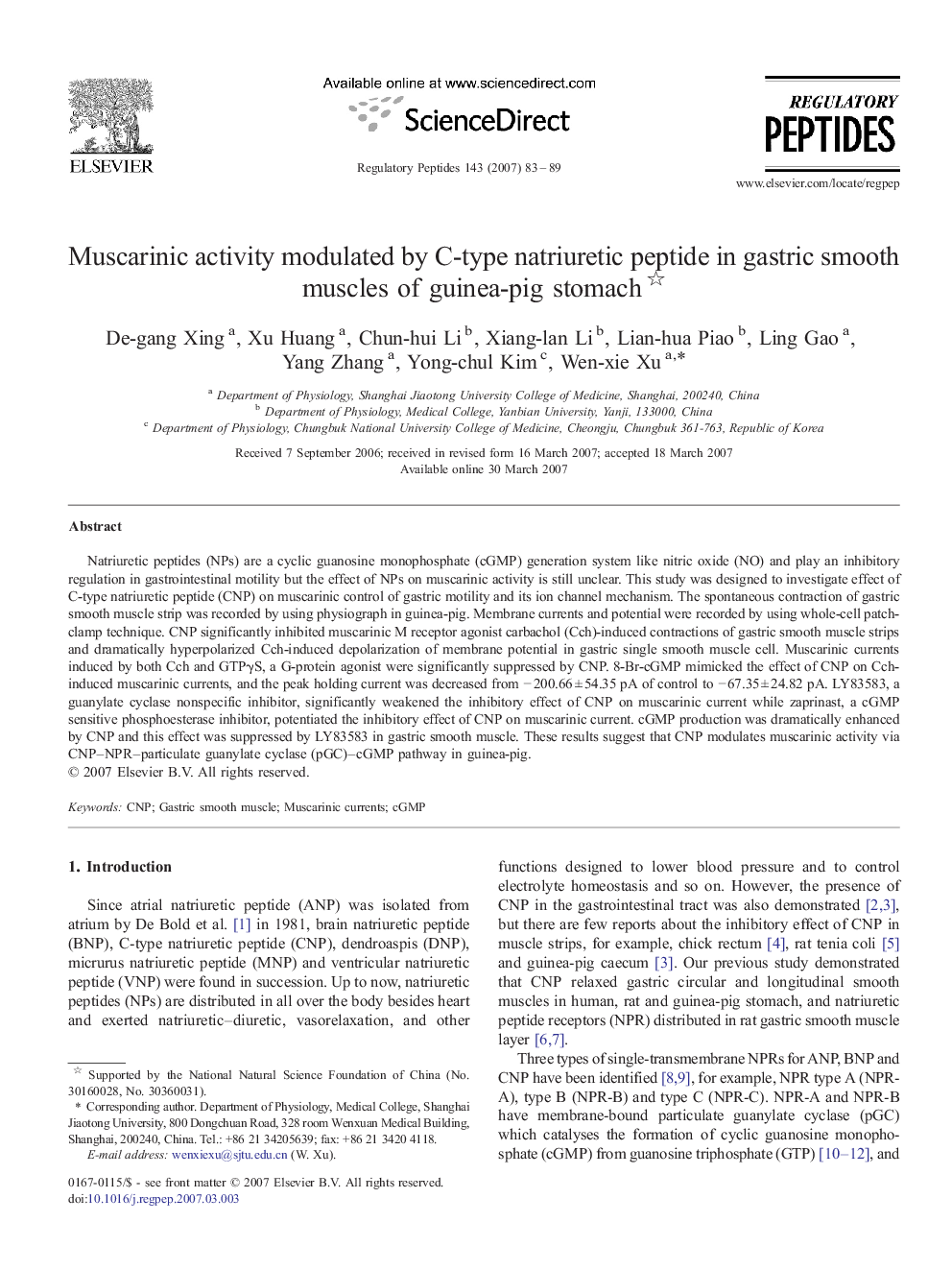| Article ID | Journal | Published Year | Pages | File Type |
|---|---|---|---|---|
| 2023203 | Regulatory Peptides | 2007 | 7 Pages |
Abstract
Natriuretic peptides (NPs) are a cyclic guanosine monophosphate (cGMP) generation system like nitric oxide (NO) and play an inhibitory regulation in gastrointestinal motility but the effect of NPs on muscarinic activity is still unclear. This study was designed to investigate effect of C-type natriuretic peptide (CNP) on muscarinic control of gastric motility and its ion channel mechanism. The spontaneous contraction of gastric smooth muscle strip was recorded by using physiograph in guinea-pig. Membrane currents and potential were recorded by using whole-cell patch-clamp technique. CNP significantly inhibited muscarinic M receptor agonist carbachol (Cch)-induced contractions of gastric smooth muscle strips and dramatically hyperpolarized Cch-induced depolarization of membrane potential in gastric single smooth muscle cell. Muscarinic currents induced by both Cch and GTPγS, a G-protein agonist were significantly suppressed by CNP. 8-Br-cGMP mimicked the effect of CNP on Cch-induced muscarinic currents, and the peak holding current was decreased from â 200.66 ± 54.35 pA of control to â 67.35 ± 24.82 pA. LY83583, a guanylate cyclase nonspecific inhibitor, significantly weakened the inhibitory effect of CNP on muscarinic current while zaprinast, a cGMP sensitive phosphoesterase inhibitor, potentiated the inhibitory effect of CNP on muscarinic current. cGMP production was dramatically enhanced by CNP and this effect was suppressed by LY83583 in gastric smooth muscle. These results suggest that CNP modulates muscarinic activity via CNP-NPR-particulate guanylate cyclase (pGC)-cGMP pathway in guinea-pig.
Keywords
Related Topics
Life Sciences
Biochemistry, Genetics and Molecular Biology
Biochemistry
Authors
De-gang Xing, Xu Huang, Chun-hui Li, Xiang-lan Li, Lian-hua Piao, Ling Gao, Yang Zhang, Yong-chul Kim, Wen-xie Xu,
